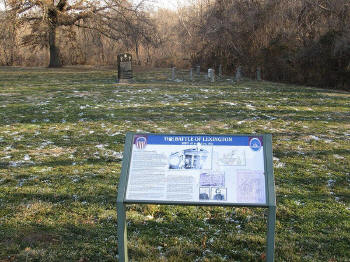|
Battle of Lexington, Missouri Page5 Battle of Lexington Page1 2 3 4 5 6 Next |
||
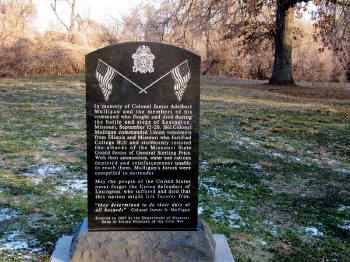 |
||
|
(February 2013)
Enlarge Marker
Detail The Battle of Lexington
marker (Battlefield and
Union Cemetery).
Additional information |
(February 2013)
Enlarge
Union Monument dedicated
to Colonel James A. Mulligan's men.
More
Monument info |
|
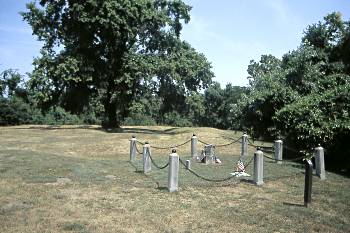 |
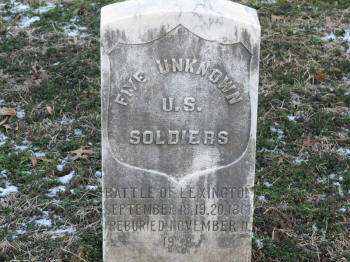 |
|
|
(2002) During excavations in 1932 the remains of five unknown soldiers
were discovered within the Union garrison near the old Masonic College
building-the Union headquarters during the Battle of Lexington. War
remnants discovered among the bodies suggest they may have been Union
cavalry under
Colonel Thomas A. Marshall. During the days of the Battle of
Lexington, out-numbered Union troops were besieged and suffered greatly
from shortages of food and water, cut off by State Guard forces which had
surrounded the Federal fortification. |
(February 2013)
Enlarge
Five Unknown Union Soldier's grave site next to Mulligan monument. |
|
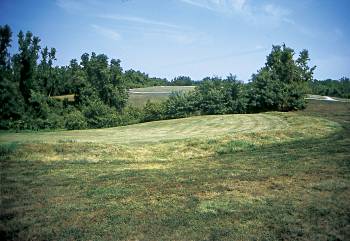 |
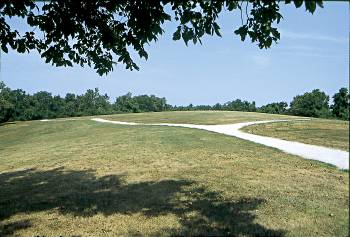 |
|
|
(2002) Although erosion has taken its toll, todayÆs visitor can still see the
narrow wandering mounds, the only visible remains of the Union defensive
trenches. If you look closely at this photo you can make out the small
ridge from left to right in the foreground. At the time of the battle, the
trenches enclosed approximately 15 acres. Union forces within the
fortification numbered approximately 3,500. |
(2002) Federal Base.
This area on the crown of the bluff was the original campsite of the
Missouri Home Guard units serving under Colonel Mulligan. These units were
largely composed of pro-Union German immigrants from southern
Lafayette
County, commanded by Major F. W. Becker. Soon after the battle
began, the Home Guard camp was evacuated. The Germans continued to defend
the trenches to the north until the surrender on Sept. 20. |
